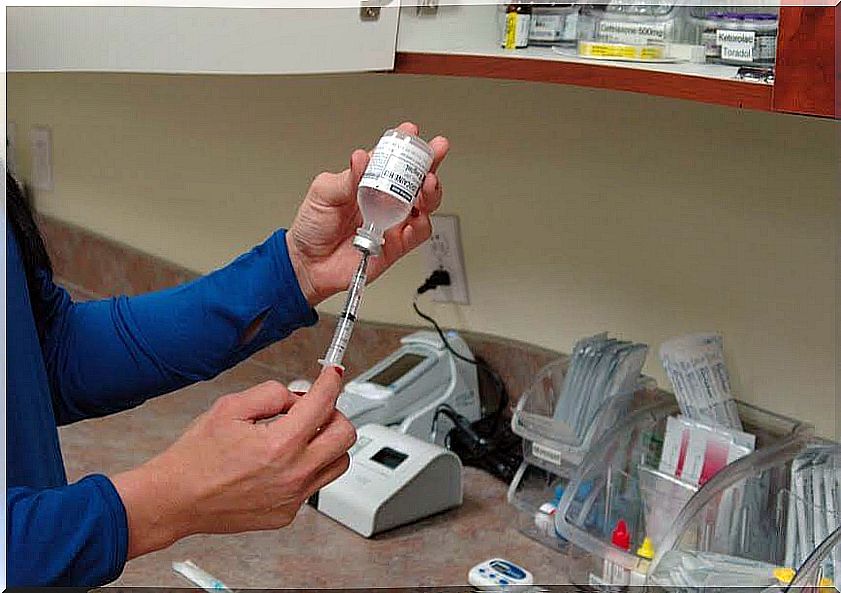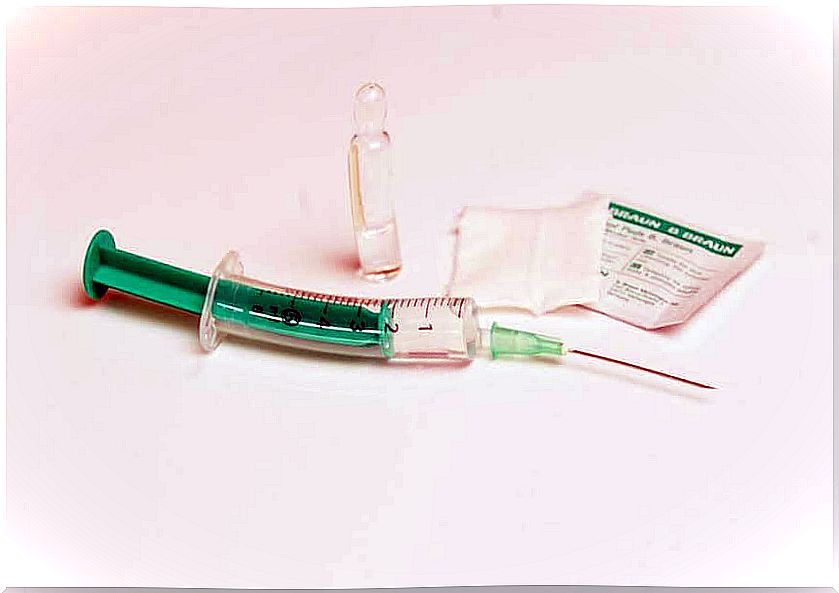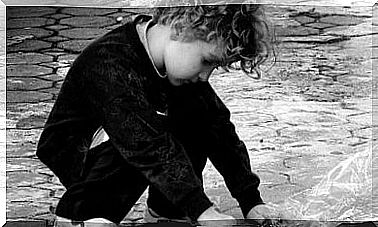Help! My Son Is Afraid Of Injections

The fear of injections is one of the most common phobias and usually manifests itself in children with approximately five years of age. Read on to help your children overcome this fear.
Trypanophobia is the fear of injections and affects about 10% of the population of all ages. However, it is necessary to emphasize that this phobia appears in early childhood, between four and five years of age, and can be influenced by adults.
You might be surprised to read this, but it is a scientifically proven truth. On many occasions, the fears that children develop are unfounded by their parents or caregivers, who teach – consciously or unconsciously – patterns of behavior that can be harmful.
In the case of the fear of injections, it can develop in the face of repeated warnings from parents every time they need to take their children to the doctor.
Phrases such as “it will hurt”, “do not cry because you are old”, “if you move you can hurt yourself more”, can have an impact on the way children perceive needles.
Of course it hurts, but overdoing it won’t help the child. On the contrary, it will prevent you from being relaxed, you will feel distress and the nerves can increase the sensation of pain.
There is no doubt that everything that happens to our little ones hurts us parents, but we must be careful when it comes to the fears that we are transmitting to them.
Fear of injections may be unfounded by parents
Forbidden to threaten with injections

Unfortunately, some parents take advantage of their children’s weakness to manipulate or threaten them.
For example, it is not uncommon to hear a mother say to her son: “If you don’t obey, I will take you to the doctor for an injection.” It sounds absurd, but this is more frequent than we think.
In this way we are only inciting the development of fears in our children, who will assume that injecting themselves can mean a traumatic and painful experience.
The truth is that if the child already shows signs of his injection phobia, it is advisable to help him overcome it.
Prepare your child
If you notice that your child becomes very nervous when they should inject, explain why it is necessary to do it and the benefits you will get. Other recommendations that we can give you are:
- Tell him about the thousands of people who inject daily and live healthy and strong
- A good idea is that you try to take your children to your medical appointments, in order to be witnesses when you receive an injection
- If possible, ask your doctor to allow you to be with your child. After receiving the injection, thank your doctor
- We cannot underestimate the reactions of our children, the ideal is to help them overcome their fears
- It is advisable to talk with the little ones about the sensation that the puncture produces and the time it takes to disappear
- Show your understanding and promise that you will protect them
- Ask your child to identify in which part of his body the injection hurts the least, this way you can ask the doctor if it is possible to inject him there
- If the doctor cannot make concessions, then explain to your child in simple words that the medicine must be given correctly to guarantee its effect.
Medical recommendations

There are also a number of tips that have been put into practice by health professionals and that help children when they must receive injections:
- Apply a topical anesthetic to reduce pain sensation minutes before injecting the child
- Elevate your child’s feet a little before they are injected, this will improve circulation and this will help prevent blackouts.
- We can ask children to take a deep breath and count to ten, because everything will end even before they finish counting.
- Parents should distract the child even before the doctor places the needle on the skin, the idea is to decrease their tension and anxiety when thinking about the prick
- Ask him to look at you and not at the needle, so he won’t focus on its size or shape.
Parental support is essential. For no reason can we underestimate the fear of children.
If they feel the confidence to tell us what worries them, then we must do everything in our power to accompany them in this phase that can be overcome in a short time.









